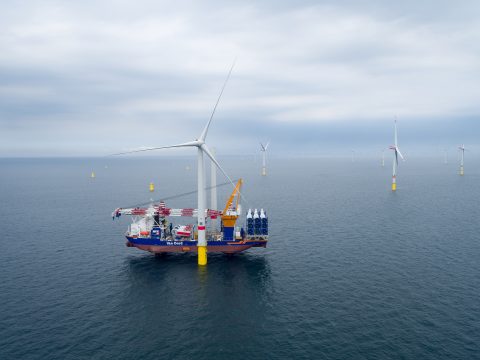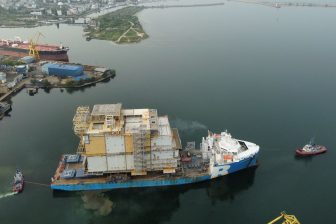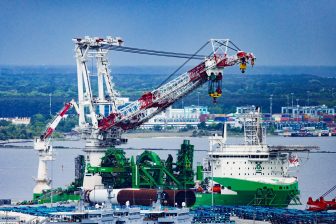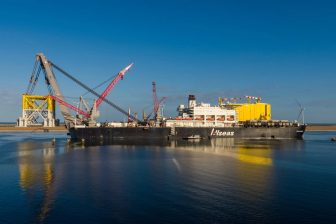
Offshore wind keeps Van Oord on track in “most challenging year”
The offshore wind market and Dutch business have kept Van Oord on track in 2020, delivering “solid results despite it being one of the most challenging years in our 150-year history”, says CEO Pieter van Oord. By quickly responding to the pandemic with cost-cutting and operational measures, the company increased its revenue and booked solid returns, albeit lower compared to the year before.
Van Oord achieved revenue of EUR 1.7 billion, compared to 1.6 billion the year before. The company’s operational result ended roughly 10% lower and amounted to EUR 226 million (2019: EUR 254 million) while net profit fell by roughly 30% from EUR 46 to 33 million.
Other notable numbers are Van Oord’s order book, which remained stable at EUR 3.6 billion, and the operational cash flow which skyrocketed from EUR 30 million last year to EUR 476 million now.
The revenue build-up in 2020 also varied compared with 2019. The Dredging business unit declined further from EUR 690 million in 2019 to EUR 598 million this year as a result of ongoing market pressure enhanced by Covid-19. The Offshore Wind business on the other hand picked up and increased from EUR 571 million to EUR 632 million. Business activity in the Netherlands, Van Oord’s home country, also picked up from EUR 173 to 236 million. The Offshore business, which is mostly related to the oil & gas markets, kept its revenue stable at EUR 211 million.
While the order book remained stable it is expected to grow this year as the underlying markets remain attractive, Van Oord says. In 2020, Van Oord was for example selected by RWE as the preferred EPCI-contractor for the Sofia Offshore Wind Farm. This large project is not included in the orderbook year end 2020. Van Oord will be responsible for the installation of the monopile foundations and array cables of the 1.4 GW offshore wind project.
“Difficult decision”
“It goes without saying that 2020 has been a disruptive year. The pandemic has impacted the global economy, our markets, clients, projects, and employees. The oil and gas market in particular was hit hard. Global maritime trade plunged and port investment projects were postponed and slowed down. Consequently, the tender volume in a number of our activities fell sharply”, says Pieter van Oord.
The CEO adds that he’s proud of how the company managed to navigate the turbulent times even though he had to make some difficult decisions, like laying off a “considerable” number of employees.
Despite the turmoil, the CEO is optimistic about the future. “Population growth, maritime trade growth, the energy transition and the rising energy demand combined with the impact of climate change will fuel all our business activities for the coming decades. We are committed to further investments in our leading market positions and are ready to step up when the global economy recovers”, Van Oord says.
You just read one of our premium articles free of charge
Register now to keep reading premium articles.




